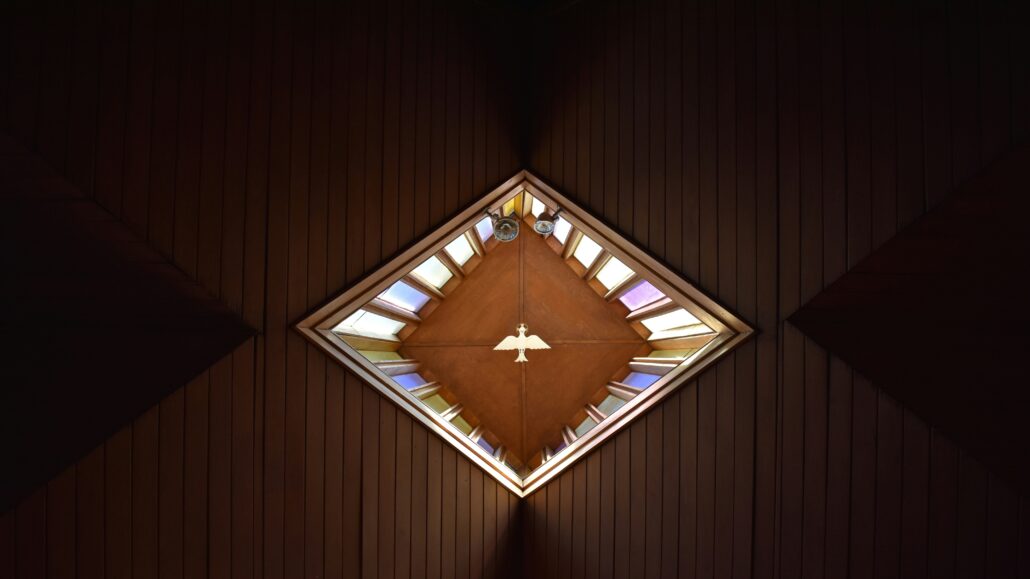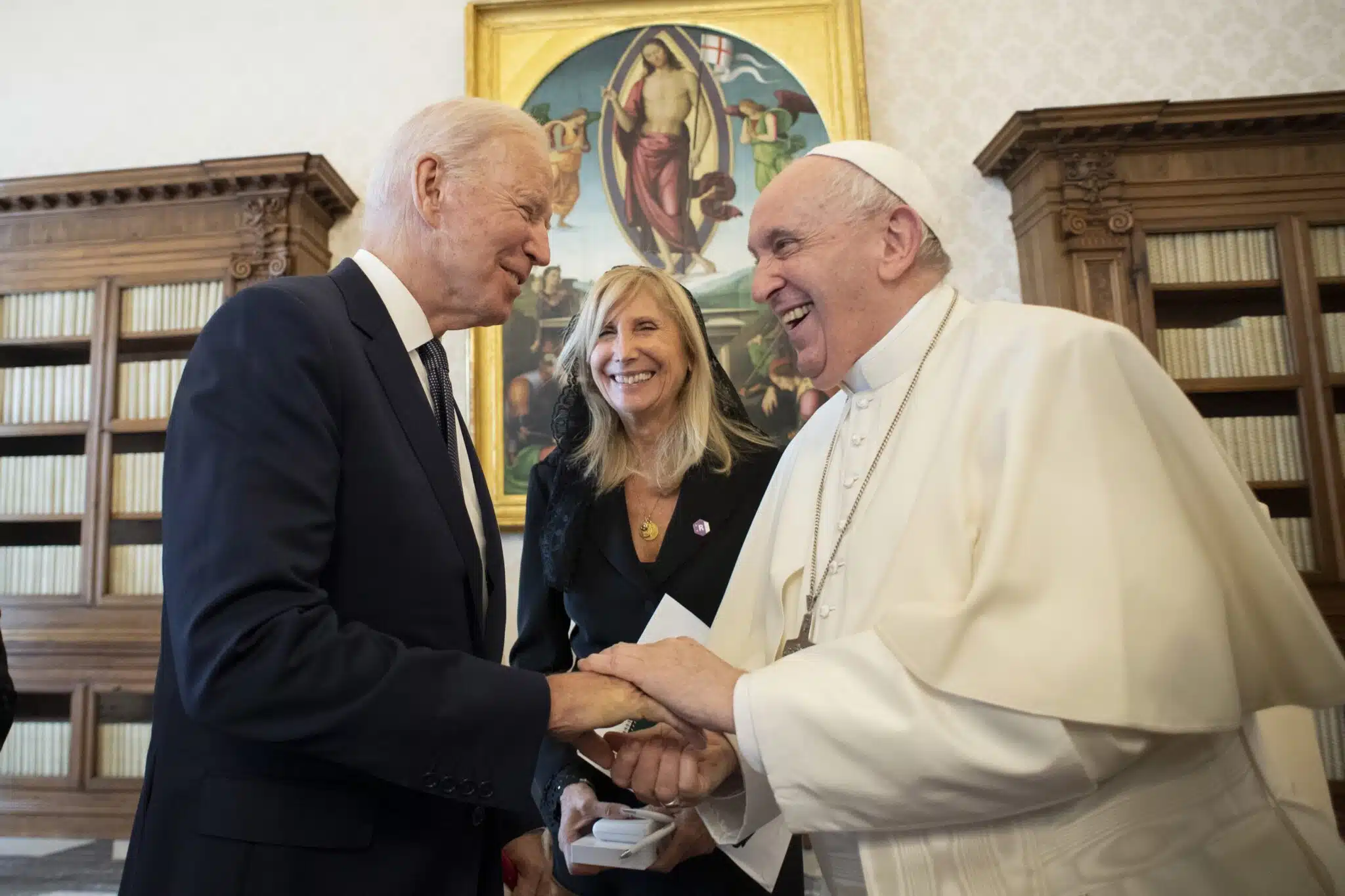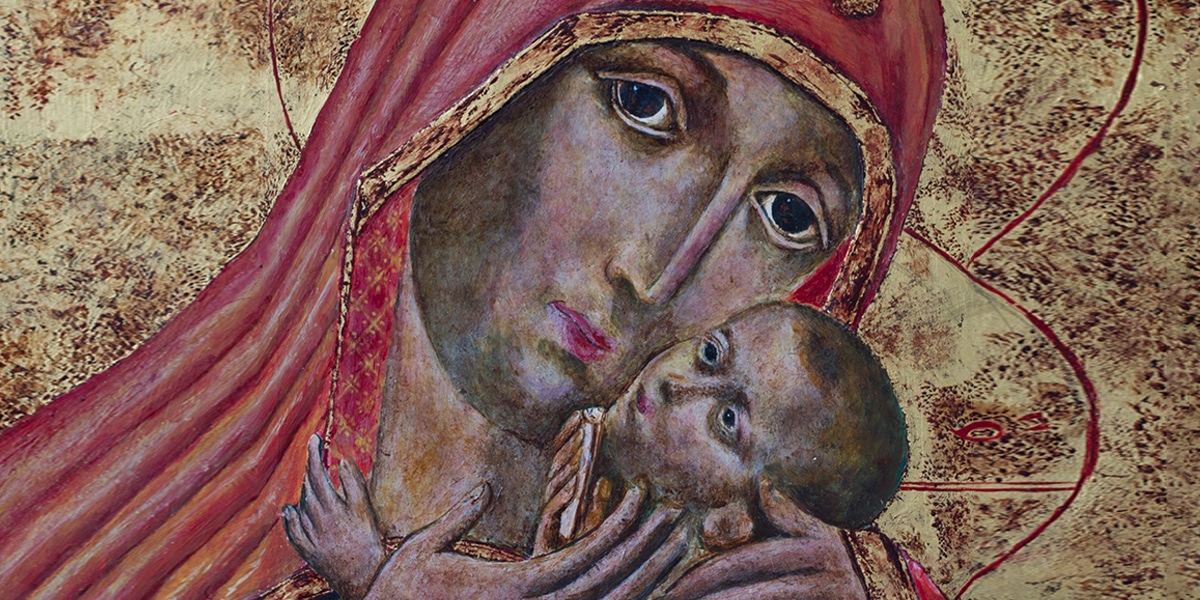Interior peace is the awareness that God is and dwells in all of creation, and from that awareness flows the other three necessary elements of Pope Francis’s statement, namely, concern for nature, justice for the poor, and commitment to society.
All these four are interconnected because God not only is, but God is the Creator. Everything outside of the inner life of the Blessed Trinity has its cause in the Trinitarian inter-relating God: three divine persons whose interrelating love is the energy that creates a mirror-world outside of itself. The interrelating love within and among this Trinity of Persons explodes into the divine energy of creation. We, and the whole universe, are the children of divine loving. And the three divine persons—Father, Son, and Holy Spirit—mark everyone and everything that is as being loved by God. We are loved into
existence.
In all creatures, therefore, God is revealed to us: the beauty, the grandeur, the infinite variety, the individuality, and the mystery. That is what St. Francis saw and what he teaches us. But something has deformed the beauty of God’s creation, and that something is injustice. According to St. Bonaventure, in his Collationes en Hexaëmeron, “justice makes beautiful what has been deformed.” Justice then is the path to peace, peace of mind, peace between and among people, and peace among all God’s creatures.
St. Francis, of course, was not a philosopher, a thinker, and theologian like St. Bonaventure. He was a seer, a poet. He spent his whole life trying to see rather than trying to reason things out. He was always looking for signs of God in the world around him. He had found God in the lepers, so he knew that one must look hard and long in order to see the hidden mystery beneath the appearances of things. And because of his deep presence to things and people, he was also a contemplative, one who looks and looks deeply. And that is the first step toward making peace and reconciliation.
The Story of Saint Francis
The story of Francis and the sultan was possible because of another seminal story of the Franciscan tradition. It is one the friars themselves turn to again and again. It is winter, and Francis and Leo are on the road returning from Perugia to his beloved Porziuncola, St. Mary of the Angels. The biting cold pierces to the bone, their bodies shaking as they walk. And then, suddenly, as when he was close to despair and Christ spoke to Francis from the cross of San Damiano, Christ now begins to speak through Francis himself out of the cold and bitter silence:
“Brother Leo.”
“Yes, father Francis.”
“We Lesser Brothers have become examples of holiness and edification for many. But write down, dear brother, that there is no perfect joy in that.”
And then Francis is silent, and they walk on in silence, Brother Leo wondering if that is all God has given Francis to say. Butagain Francis speaks.
“Brother Leo.”
“Yes, father Francis.”
“We Brothers are known as healers. But even if we were to give sight to the blind, make straight what is crooked, cast out devils, restore hearing to the deaf, make the lame walk and the dumb speak, and raise to life someone who has been dead for days, write down, Brother Leo, that this is not perfect joy.”
They are no longer shaking from the cold. They are walking steadily, both of them listening for Christ’s words to them.
“Brother Leo.”
“Yes, father Francis.”
“Should one of the Brothers know every language and every science, and all the Scriptures, so that he could foretell and reveal the future, as well as the secrets of conscience and soul, write down that neither is this perfect joy.”
They walk on. Brother Leo wonders if Francis already knows what perfect joy is, or is Christ going to reveal it to them both on the road, as he did to two of his disciples on the road to Emmaus?
“Brother Leo.”
“Yes, father Francis. I am listening.”
“Brother Leo, little lamb of God, even if one of us Brothers should speak with the tongue of an angel, and would know the courses of the stars and the properties of herbs; and if all the treasures of our sister, Mother Earth, were revealed to him so that he knew the ways of birds, fish, and beasts, of humans, trees, rocks, roots, and waters, write down that neither is this perfect joy.”
The walking now has become the prayer of listening in silence, not even the wind or the sound of their steps in the icy mud distracting them from being ears for Christ.
“Brother Leo, even if one of us were such an eloquent preacher that his words could convert unbelievers to faith in Christ, write down that neither is this perfect joy.”
Finally, Brother Leo can bear the suspense no longer.
“Father Francis, I beg you in God’s name, what then is perfect joy?”
But Francis is silent, waiting for Christ’s answer.
“Brother Leo.”
“Speak, father Francis. I am listening.”
“Brother Leo, when we arrive at St. Mary of the Angels, soaked with rain, stiff with cold, covered with mud, exhausted from hunger, and we knock at the Brothers’ door, and the Brother Porter asks angrily, ‘Who are you,’ and we answer, ‘You know us, Brother, we are two of your brothers,’ and he says, ‘Liars! You are a couple of imposters who wander about deceiving good people and robbing the poor of their alms. Get out of here!’
“And if he refuses to let us in and forces us to stand outside all night in the freezing rain, hungry and shaking from the cold, if we bear such abuse and rejection patiently and calmly without complaint, humbly and charitably thinking that Brother Porter sees us for what we are, and that it is God who moves him to condemn us, then, Brother Leo, gentle lion, write down, ‘This is perfect joy.’ And if we keep knocking, and he comes out furious and drives us away with abusive words and blows, and we keep bearing all this patiently, cheerfully, and charitably, write down, ‘This is perfect joy.’
‘And if we return again and again, tearfully begging to be allowed in; and losing all control, our brother comes out with a knotted club and starts beating us, and we keep bearing such abuse patiently and cheerfully, remembering the sufferings of Christ, the Blessed One, and how he taught us to bear all things for love of him, then write down, Brother Leo, ‘This is perfect joy.’ For above all the graces that Christ gives his friends is the gift of the Holy Spirit who enables us to conquer self and willingly bear any pain, injury, insult, and hardship for love of Jesus Christ. We cannot glory in any other gift but this because it is not ours but his. That is why the Apostle Paul says, ‘May I not boast of anything except the cross of our Lord Jesus Christ…’ (Galatians 6: 14).
This story is a favorite among Franciscans. It reveals the source of true Franciscan joy born of humility in imitation of the Poor Crucified Christ. It is what makes a true fraternity a place of healing and forgiveness instead of a place of security, closed to the poor and forsaken, to those who knock uninvited and unwanted at the friary door. In a true fraternity the friars have learned to see their own brokenness, their jealousy, their desire for power. And they have learned to forgive that in themselves and in each other. They learn to laugh at themselves and tell each other that this is perfect joy. Only then does their fraternity become a healing place for others.
This is the way peacemaking happens. This is what Saint Francis says in word and deed.








